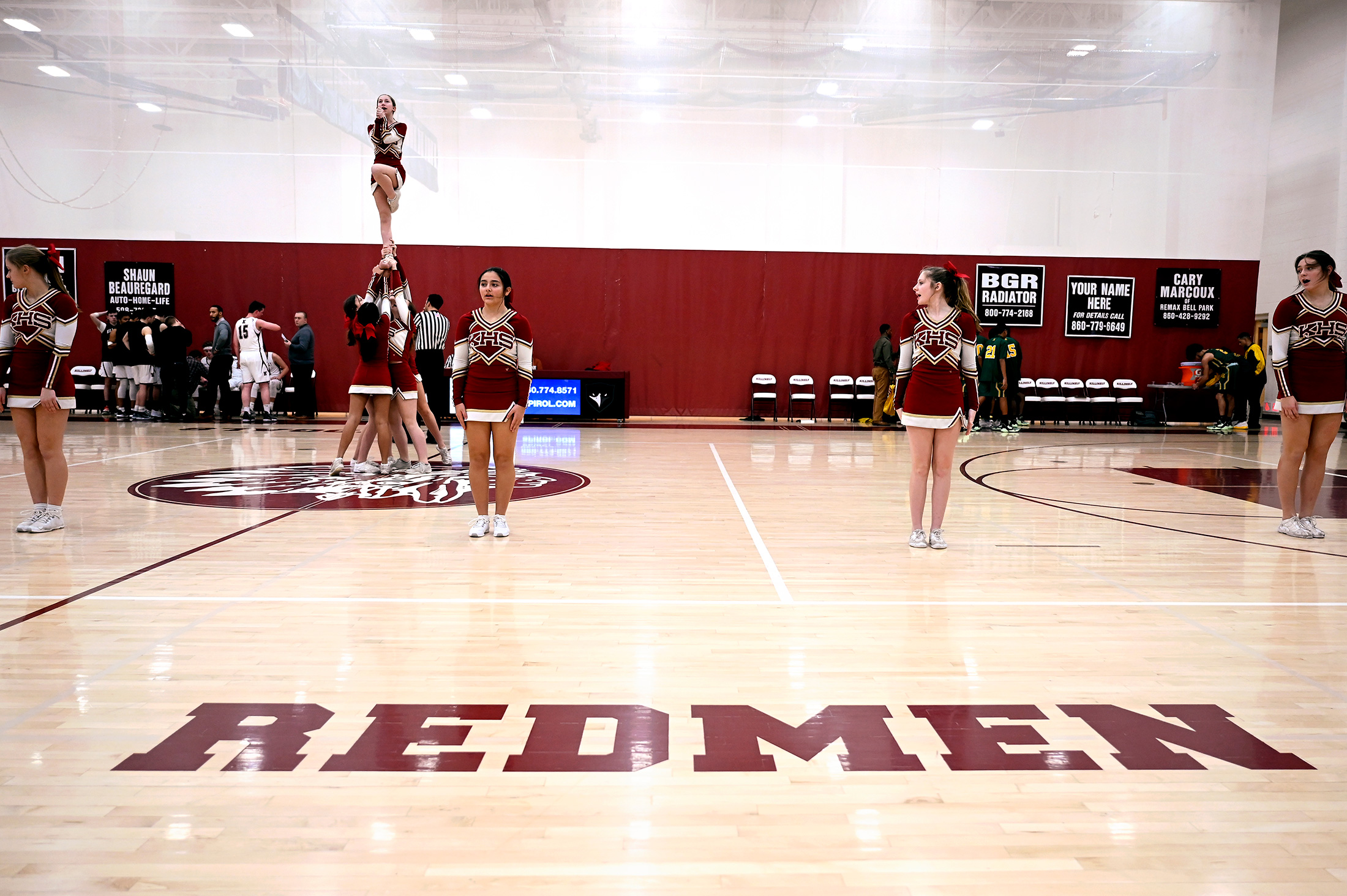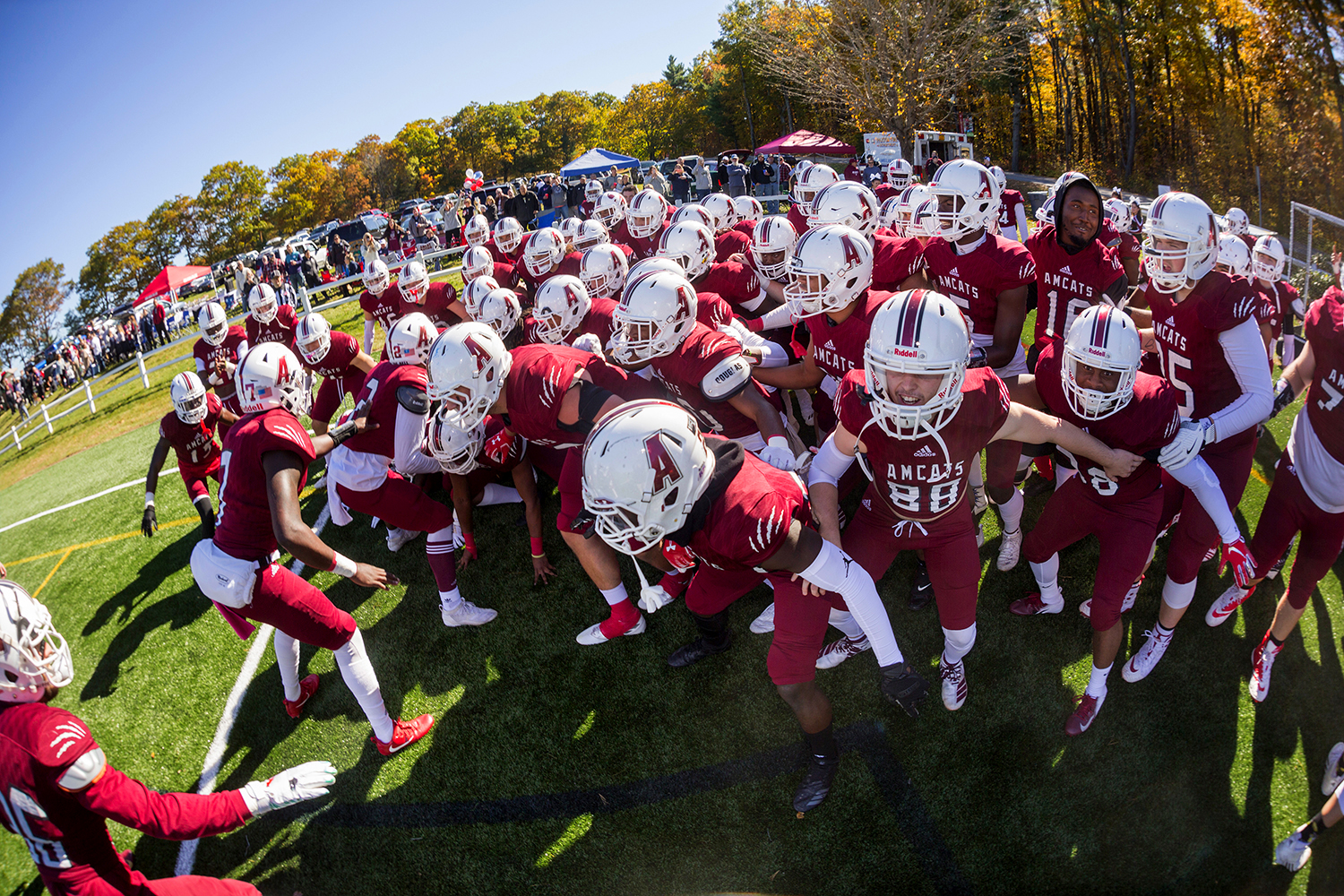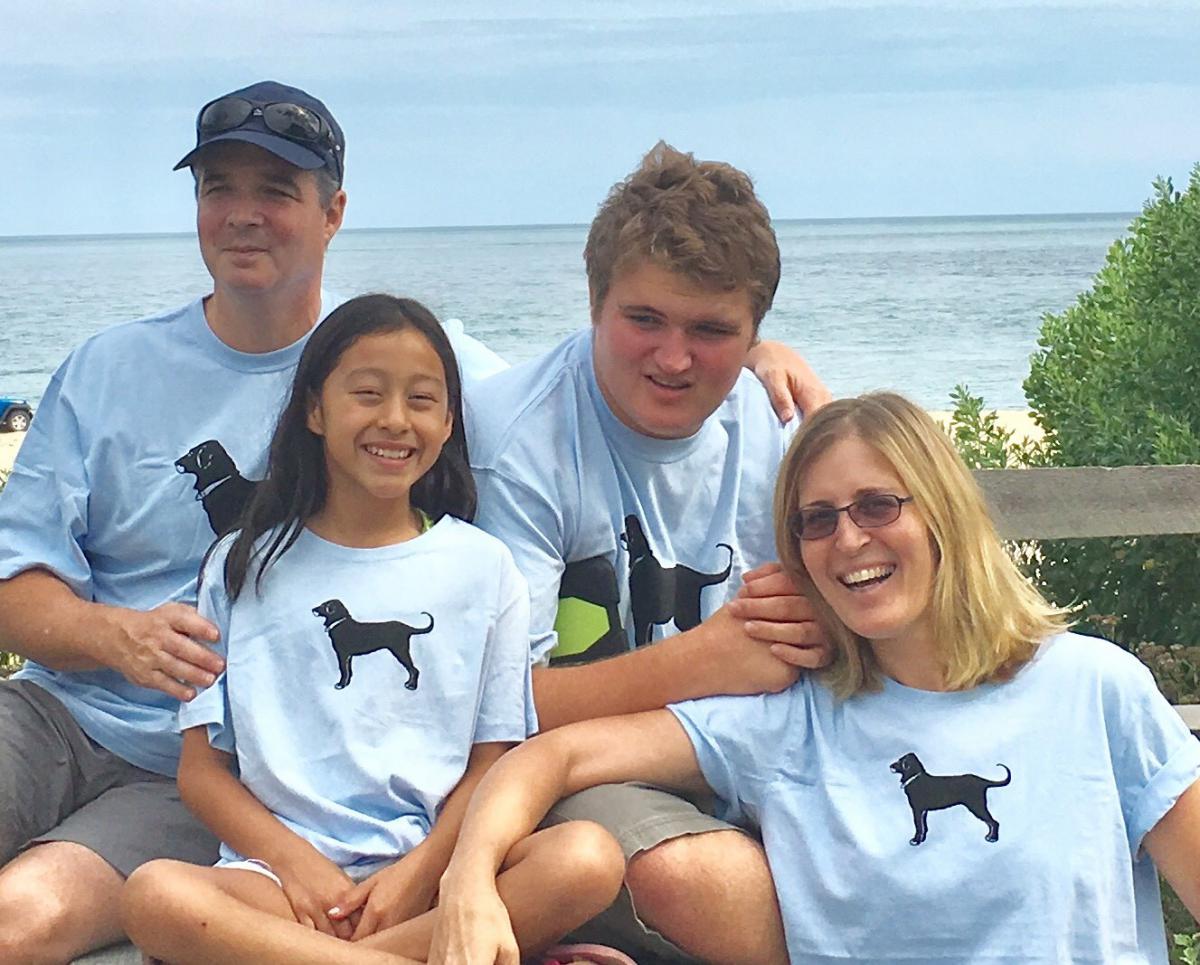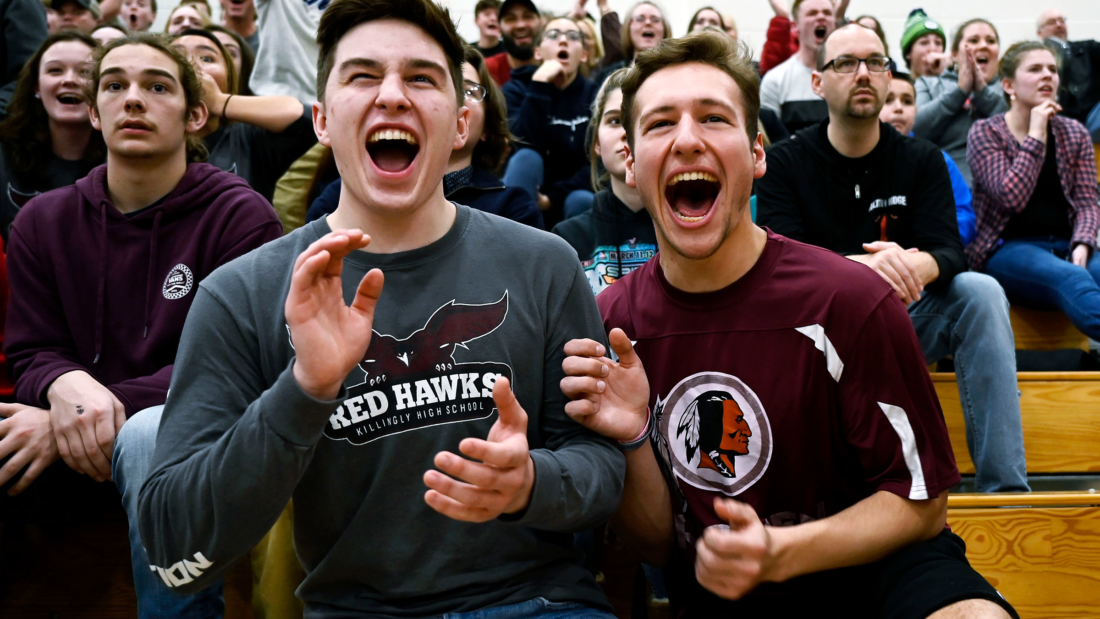Episode 181: The Town That Reinstated The “Redmen” Mascot; A Mother Helps Her Son With Severe Autism

Redmen large on the floor as the cheerleaders perform during halftime of a Killingly High School varsity basketball game on January 14, 2020. (Joe Amon/Connecticut Public)
A New England town has decided to reinstate a school mascot critics say is racist. This week on NEXT, the school board in Killingly, Conn., ditched the old “Redmen” mascot — then brought it back in what may be the first reversal of its kind. We also look at the impact of college football on the rise of two Massachusetts colleges. Plus, we talk to a mother about raising an adult son with severe autism.
Killingly, Conn., Ditched The Mascot … Then Brought It Back.
The town of Killingly, Conn., has reinstated a mascot that’s offensive to some Native Americans. Last year, the Killingly Board of Education had agreed to remove the “Redmen” high school mascot following a recommendation from the Nipmuc Nation Tribal Council. But this month, the board voted to restore the name in what may be the first reversal of its kind in the U.S. The move has brought national attention to eastern Connecticut.
“Naming a team a skin color in 2020 is just ridiculous, really,” said Barbi Gardiner, a Killingly High School alumna and member of the Chaubunagungamaug Band of Nipmuc Indians.
One College Adds Football, Another School Drops It. Both Thrive.

Anna Maria College football. (Paul Schnaittacher)
The college football season is officially over: Louisiana State University won the national championship on January 13. But for other colleges without big-time football programs, the impact of the sport can still be felt. Bill Pennington, a sports reporter for The New York Times, recently wrote an article about two New England colleges that exemplified the “dichotomy of thought about football’s place in higher education.” About a decade ago, Anna Maria College in central Massachusetts added a football program. The same year, Northeastern University in Boston eliminated theirs. Both schools got a boost.
Inventions For People With Severe Autism

Alex Borré (left), with Lila Borré, age 12, Ben Borré and Darlene Borré. (Courtesy Darlene Borré)
In homes where a family member has severe autism, day-to-day tasks can be challenging. Darlene Borré knows this first-hand: Her 18-year-old son, Ben, has severe autism and is non-verbal. Borré is trying to solve some of those challenges by working with engineering students from the University of Connecticut. The students recently presented some of their ideas at a science fair.
Also on this week’s show:
- Impeachment Trial Will Pull Warren Off The Campaign Trail At Critical Juncture
- Mouse Meals Laced With A Vaccine Might Be Key To Slowing Lyme Disease
- ‘A Little Ukrainian Soul’ Brings New Life To Historic Barre Bakery
About NEXT
NEXT is produced at Connecticut Public Radio
Host/Producer: Morgan Springer
Executive Editor: Vanessa de la Torre
Senior Director: Catie Talarski
Contributors to this episode: Kimberly Atkins, Frankie Graziano, Patrick Skahill, Angus Chen and John Dillon.
Music: Todd Merrell, “New England” by Goodnight Blue Moon, “Thanks for Playing” by Kerrin Connolly, “King Vice” by Binger and “My Heart” by Francesca Blanchard.
New to NEXT? You can find every episode or one you missed within our archives.
We want your feedback! Send critiques, suggestions, questions, and ideas to next@ctpublic.org. Help us spread the word! If you like what you hear, rate and review us on iTunes.


